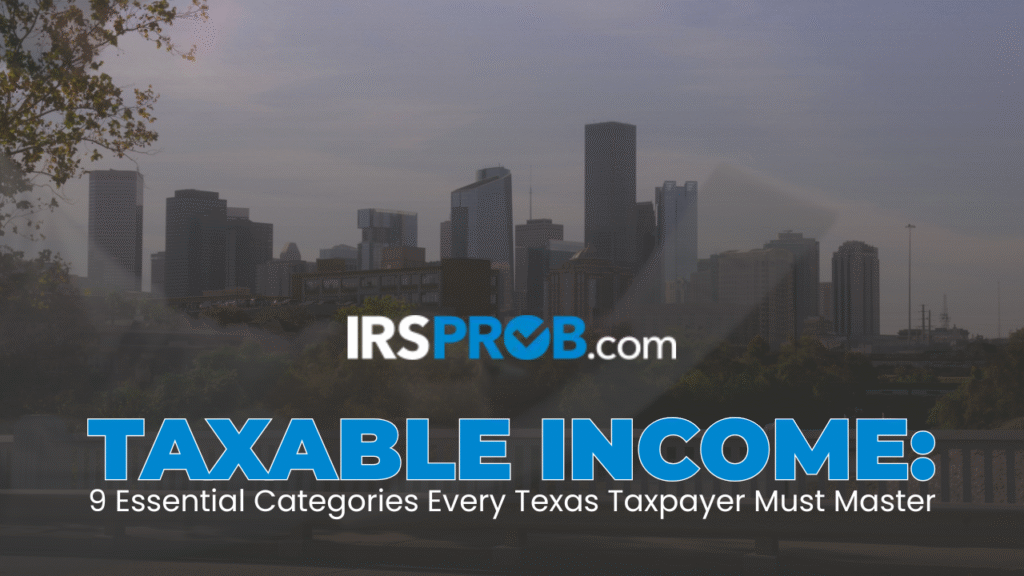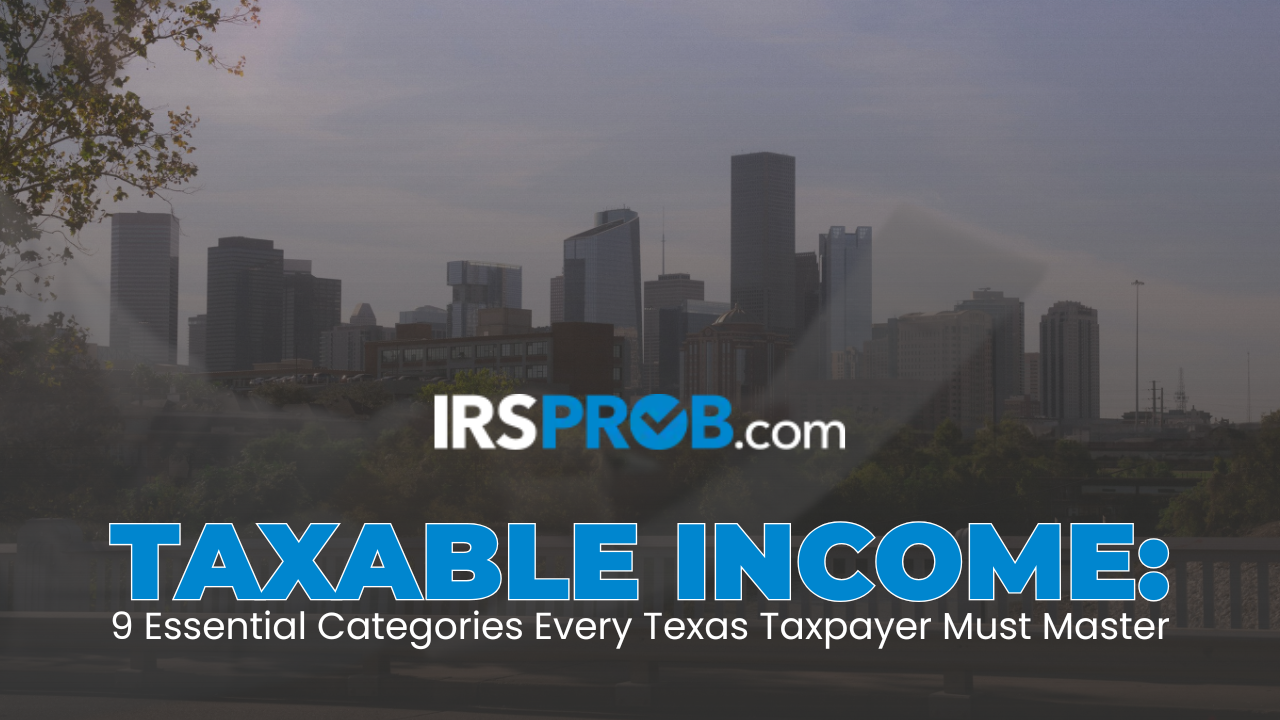
Knowing which streams of income qualify you for taxes is one of the most important money choices you’ll make this year. If you own a prosperous company in Houston, receive a salary in Dallas, or own property in Austin, the IRS has definitive principles about what constitutes taxable income.
The general rule is straightforward: nearly all of the income you get is taxable unless specific legal exclusions apply. It includes cash, property, and services you bring in from work, business endeavors, or investments. For Texas residents dealing with federal tax demands without state income tax issues, an understanding of these differences becomes increasingly crucial for proper reporting.
How Long Does a Tax Refund Normally Take?
Your W-2 wage report reveals only a portion of your income tale. Earned income from employment goes far beyond your straight salary. Commissions, bonuses, tips, and fees all need to be reported on your federal return. The IRS carefully examines these forms of income, and Texas taxpayers need to be on guard for proper documentation. Childcare givers and babysitters usually confuse what they owe in taxes. Regardless of whether you take care of children in your residence, their residence, or another setting, all compensation is taxable income.Fringe Benefits Create Hidden Tax Liability
Fringe benefits constitute a frequently misunderstood component of employee compensation. That company vehicle your employer provides? Taxable income. The gym membership your organization covers? Potentially taxable. Stock options, performance awards, and certain employer-paid insurance premiums above specific thresholds all generate tax liability.Business Income Demands Meticulous Tracking
Texas entrepreneurs face unique considerations regarding taxable business income. Revenue from selling products or services, rental income from equipment or property, and proceeds from business investments all create federal tax obligations.
Rental activities require special attention. Whether renting equipment or vehicles generates business income depends on your primary purpose and involvement level. Operating with profit intent and regular, continuous participation typically establishes business activity.
Many Texas business owners overlook the breadth of taxable business income. Cancelled debt, bartering transactions, and customer refunds you keep all generate reportable income. That website designer who exchanged services for your accounting expertise? Both parties must report the fair market value of services received.
Pass-Through Entity Income From Partnerships and S Corporations
Partnership and S corporation structures share a critical characteristic: pass-through taxation. These entities generally avoid paying tax themselves, instead passing income, losses, deductions, and credits directly to owners who report these items on individual returns.
For partnerships, your distributive share appears on your personal return whether or not you actually receive distributions. The partnership agreement governs allocation of income and losses, though loss deductions cannot exceed your adjusted partnership interest basis.
S corporations operate under similar principles. The corporation files Form 1120-S but pays no corporate tax. Shareholders report their proportionate share of corporate activities on individual returns. Texas residents who establish S corporations must understand that income recognition occurs regardless of actual distributions, and stock basis adjusts annually.
Royalties Generate Ordinary Income
Creative professionals, inventors, and mineral rights owners all encounter royalty income. Copyright payments, patent licensing fees, and oil and gas royalties all constitute ordinary income rather than capital gains. This classification often surprises recipients who expected preferential tax treatment.
Report royalty income on Schedule E unless you actively operate in that business capacity. Self-employed writers, inventors, and artists conducting business operations must use Schedule C instead. The distinction affects your ability to claim business deductions and self-employment tax calculations.
Texas landowners with mineral rights face unique royalty considerations. Oil and gas income creates both reporting obligations and depletion deduction opportunities, making professional guidance essential for proper characterization.
Virtual Currency Creates Tax Consequences
Digital asset transactions generate taxable events that many Texans fail to report. Selling cryptocurrency, exchanging one virtual currency for another, or using Bitcoin to purchase goods all create tax liability. The IRS treats virtual currency as property, meaning each transaction requires gain or loss calculation.
Mining cryptocurrency, receiving payment in digital assets, or earning rewards through staking all produce taxable income at fair market value. Texas residents participating in the growing cryptocurrency economy must maintain detailed transaction records to support accurate tax reporting.
Every tax return now asks directly about virtual currency transactions. Truthful disclosure protects you from penalties and potential criminal exposure.
Bartering Arrangements Trigger Income Recognition
Exchanging services without cash changing hands does not eliminate tax obligations. When you trade plumbing services for dental work, both parties receive taxable income equal to the fair market value of services received. This principle extends to all barter arrangements beyond informal, non-commercial exchanges like neighborhood babysitting cooperatives.
Business owners who participate in formal barter exchanges receive Form 1099-B reporting their transactions. Even informal bartering between professionals requires income recognition and proper reporting. Texas professionals increasingly use service exchanges to preserve cash flow, but these arrangements create the same tax obligations as cash transactions.
Prepaid Income Accelerates Tax Obligations
Receiving payment for future services generally creates immediate tax liability. Your tax year of receipt governs when you report the income, not when you actually perform the work. Accrual method taxpayers gain limited flexibility to defer prepaid income for services performed before the next tax year ends.
This principle significantly impacts service providers, contractors, and professionals who collect advance payments. Subscription businesses, annual maintenance contracts, and prepaid consulting arrangements all implicate these rules. Understanding income recognition timing helps you manage quarterly estimated payments and avoid underpayment penalties.
Assignment of Income Prevents Tax Avoidance
Directing income to third parties does not eliminate your tax obligation. When you instruct your employer to pay part of your salary directly to someone else, you must still report that amount as income. The IRS looks beyond payment mechanics to determine who actually earned the income.
This doctrine prevents creative tax avoidance schemes and ensures accurate reporting. The classic example involves directing salary payments to former spouses under divorce agreements. You must report that income despite never receiving the funds. Income earned by agents on your behalf creates similar obligations.
Taking Strategic Action
Texas residents enjoy the advantage of no state income tax, allowing complete focus on federal obligations. This simplification makes thorough understanding of taxable income categories even more critical for compliance and optimization.
Tax professionals’ partnership is made necessary by diversification of income sources. Income characterization, timing tactics, and deduction availability are especially helped by expert advice for businesspeople, investors, and high-net-worth individuals.
Proper income reporting necessitates proactive action throughout the year. Put systems in place now to monitor all income sources, accurately classify receipts, and keep records organized. Consider making quarterly estimated tax payments if your income streams include large amounts that are not subject to withholding.
The tax law formally excludes specific types of income from taxation. Proceeds of life insurance, qualified Roth IRA distributions, gifts within annual exclusion limits, and municipal bond interest in certain cases are exempt from federal taxation. Knowing what income escapes taxation guides you in arranging affairs beneficially.
Your economic well-being hinges on knowing and accurately reporting taxable income. Federal law mandates proper revelation of all tax payable income. Get control over your tax burden by commanding these nine basic categories of income. Your future prosperity rests upon this preliminary knowledge.
For more details call (214) 814-1917 or visit IRSProb.com now.







